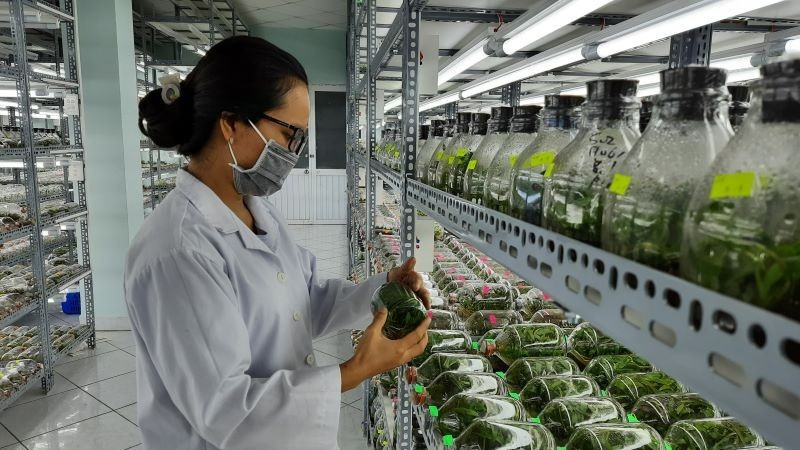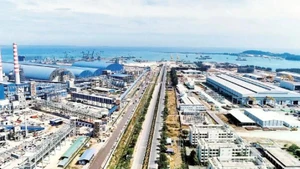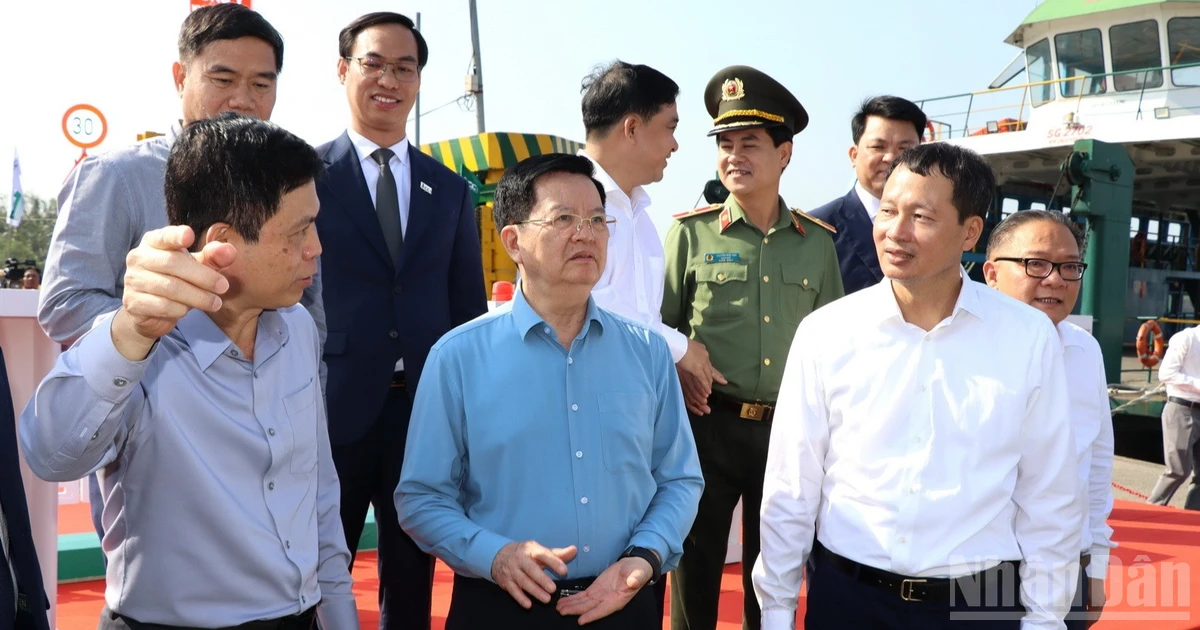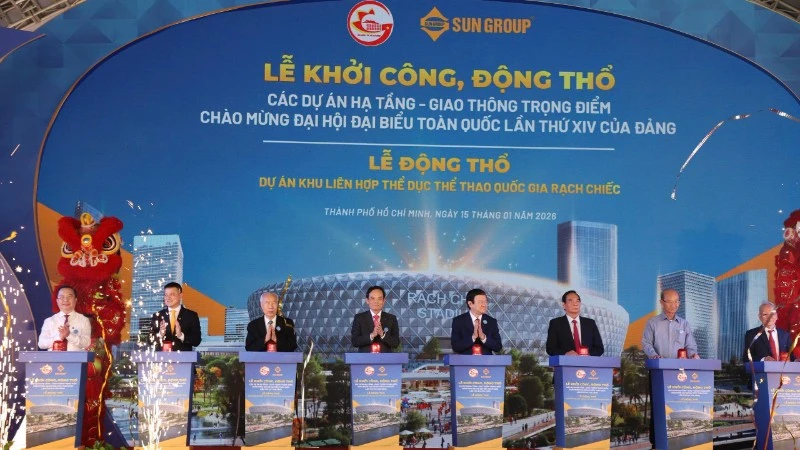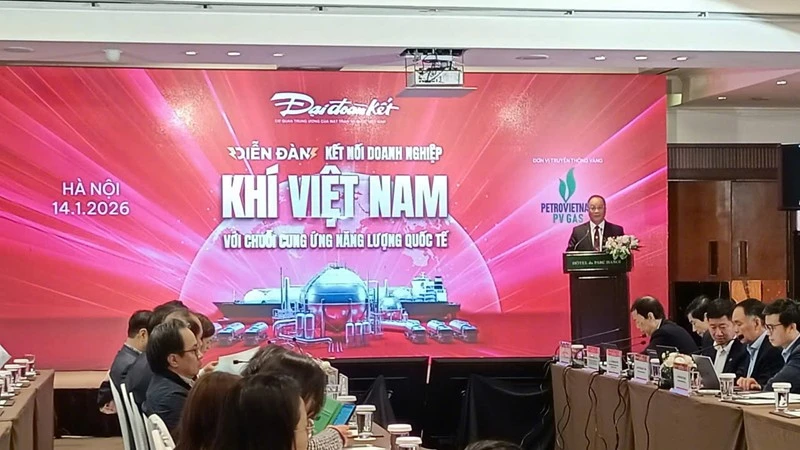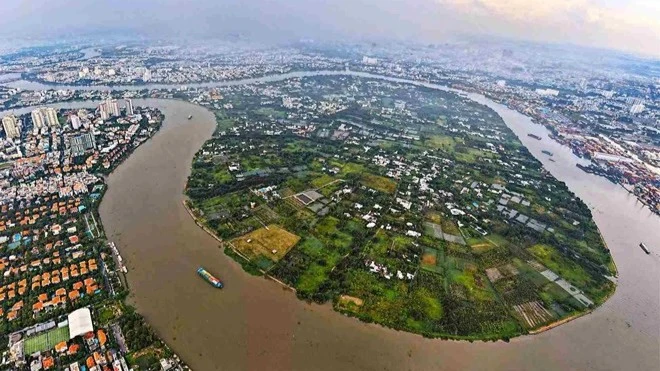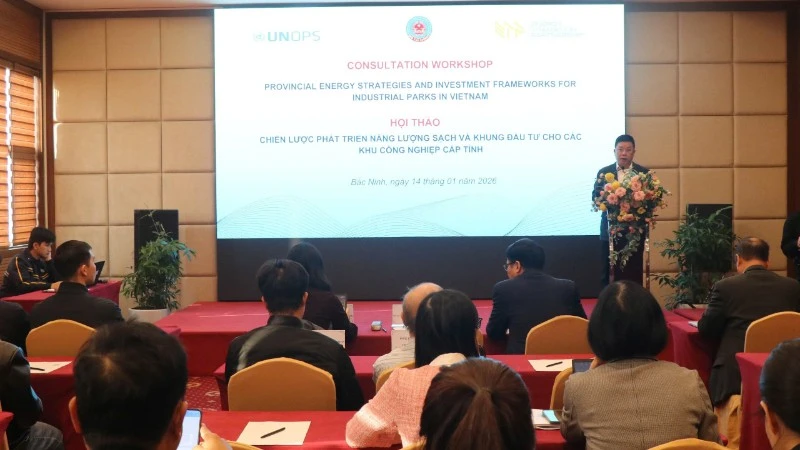Experts believe that, in the current context, developing high-tech agriculture is an inevitable trend, creating a driving force for Ho Chi Minh City’s agriculture to develop in a modern direction.
With rapid urbanisation leading to a shrinking agricultural land area, the shift from “soil-based” vegetable cultivation to “soil-less” farming has become an optimal choice.
In response to this situation, the Ho Chi Minh City Biotechnology Centre is experimenting with growing lettuce using the Plant Factory System. This hydroponic cultivation system, designed based on the Japanese model, covers a total area of 34.5 square metres.
The plant cultivation room is equipped with ten racks, each with an area of 0.84 square metres, divided into four layers, providing a total planting area of 3.36 square metres per rack. Using this system, the Ho Chi Minh City Biotechnology Centre has tested seven lettuce varieties originating from the Netherlands, Japan and Viet Nam.
After several planting cycles, most lettuce varieties have shown good adaptability to the growing conditions, with 15 harvests per year, achieving higher productivity and quality than traditional cultivation methods.
Building on these results, the Ho Chi Minh City Biotechnology Centre plans to expand the Plant Factory model to produce other high-value vegetables, crops, and transfer the technology to farmers, cooperatives and enterprises for large-scale application.
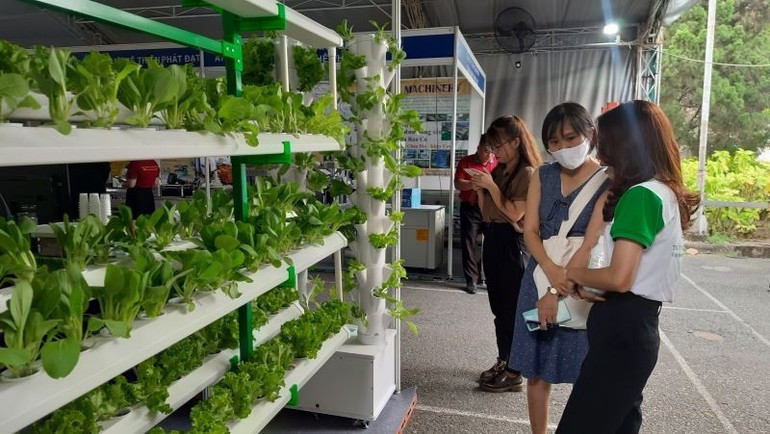
In the field of crop production, the Ho Chi Minh City Biotechnology Centre has researched and completed high-tech processes for in-vitro propagation of ornamental plants, medicinal plants and other crops; processes for producing orchid seedlings, foliage ornamentals, and ginseng root biomass (Panax vietnamensis); high-tech agricultural cultivation processes such as melon and cucumber production in greenhouses and Plant Factory systems; and technical processes for detecting plant viruses. Seed products include orchid varieties, F1 melons, F1 cherry tomatoes, F1 bitter gourds. These products are ready to be transferred to organisations and individuals in need.
According to Dr. Ha Thi Loan, Deputy Director of the Ho Chi Minh City Biotechnology Centre, the centre has so far established relatively complete, modern and synchronised facilities and a team of young, highly qualified, dynamic and enthusiastic scientists.
Many of the centre’s studies have yielded practical products that have been applied in practice, initially yielding positive outcomes. In the coming time, the centre will continue researching and developing new plant and animal breeds with good traits, disease resistance and adaptability to climate change, as well as high productivity and quality. It will also focus on developing new technologies and improved products for application in the production of biotechnological products for the agricultural sector.
To enhance the value of agricultural production, Ho Chi Minh City has identified high-tech agricultural development as an inevitable trend, striving to become a national centre for plant and animal breeding, moving towards a regional-level.
So far, the city’s agricultural sector has achieved notable results, forming complete production chains and gradually shaping a high-tech agricultural ecosystem.
However, experts believe that to meet the requirements of advanced technology application in production, it is necessary to accelerate digital transformation in agriculture. This includes focusing on the application of digital technology in developing high-tech agriculture, building big-data systems, promoting the development of “digital farmers”, and automating production processes.
In addition, attention should be given to training human resources for research and application of new technologies in the production of plant and animal breeds, meeting the growing demand for productivity and agricultural product quality.
According to Dr. Le Khac Hoang from Ho Chi Minh City University of Agriculture and Forestry, high technology application in the city’s agriculture requires comprehensive innovation and the application of sophisticated technologies to enhance agricultural production efficiency. Artificial Intelligence (AI), the Internet of Things (IoT), and digital transformation are examples of typical technologies that could represent the next direction for high-tech application in the city’s agricultural development.
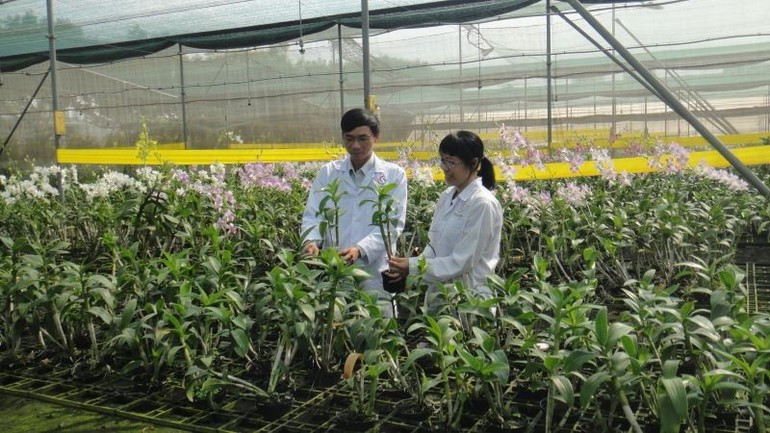
In the context of decreasing agricultural land, developing high-tech agriculture, urban agriculture and the application of science and technology in production have become inevitable and urgent trends.
From now until 2030, the city’s agricultural sector will continue to promote high-tech, biotechnological, information-technology, automation and other advanced technologies to create high-quality agricultural products, including plant, livestock and aquaculture breeds. These efforts aim to generate agricultural products with high productivity, quality, added value, safety and high competitiveness.
To achieve this goal, Ho Chi Minh City is implementing policies to encourage the restructuring of urban agriculture; policies promoting the development of cooperatives and linkage models in agricultural production and product consumption in chains, focusing on partnerships between farmers, cooperatives, and enterprises supplying and consuming agricultural products.
At the same time, the city is stimulating investment demand, creating favourable conditions to attract domestic and foreign corporations and enterprises to invest in projects based on linkage models, models of information-technology application, digital economy, circular economy, and other advanced models suitable for the development of plant and animal breeding, high-tech agriculture, and incubating agricultural business.
